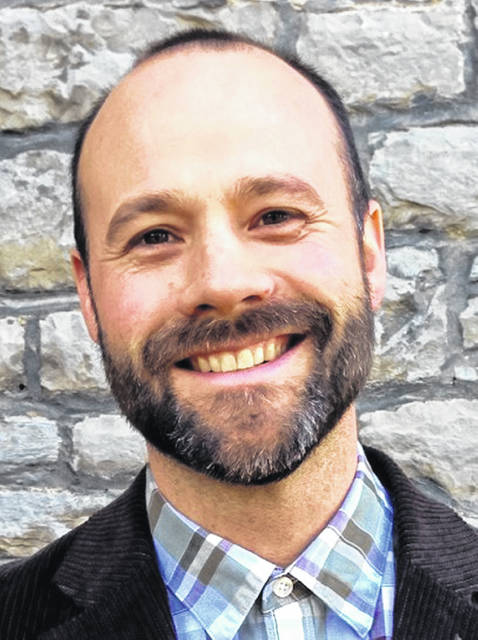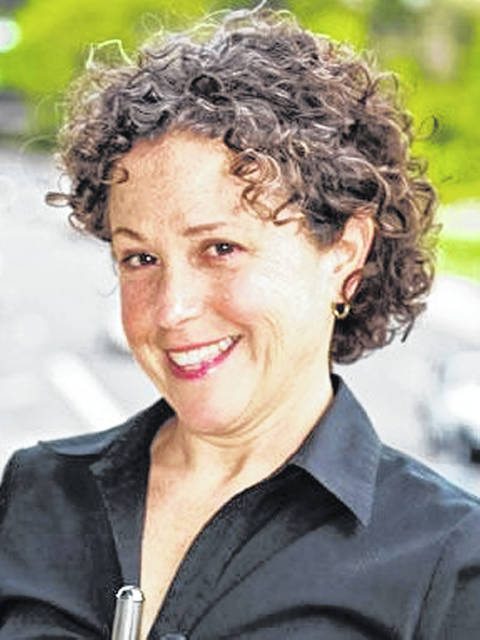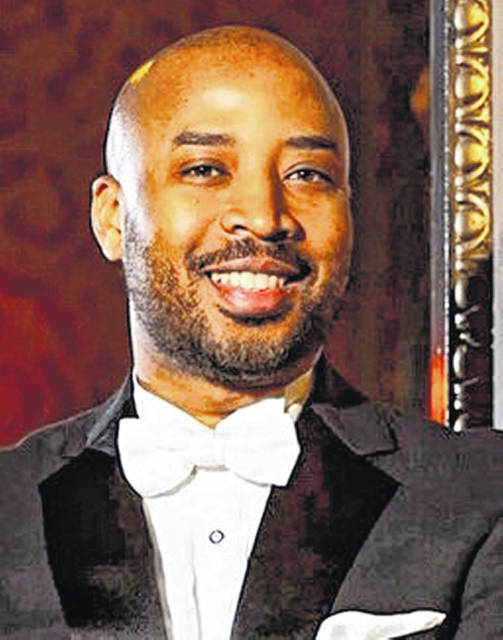


The COVID-19 pandemic has impacted even the field of music, and three Ohio Wesleyan University music professors talked about it Monday.
“The Virtual Concert Hall: Performing Arts in the Age of COVID-19” was an hour-long virtual panel discussion with Ohio Wesleyan’s Antoine Clark (music), Rich Edwards (music), and Nancy Gamso (music).
“Music has always soothed and encouraged the oppressed during difficult times,” said Gamso, an orchestra clarinetist. “We have a body of songs from every human rights movement. Music’s primary function is community building.”
Gamso said following the 1919 flu pandemic, the musical world received a monetary boost from a new invention, the record. When bans on concerts were lifted, attendance surged. “The reality is, attendance at live performances has been waning since the 1980s.”
She said that musicians are used to practicing alone for long periods of time, so they have handled being sequestered better than others who have had to stay at home due to the pandemic.
In addition, listeners now have access to much more content, including from obscure musicians. Gamso pointed to the success of a European virtual trio formed during the crisis called the Stay Homas band, which has sold out a “live” show later in July.
She said Jazz at Lincoln Center has new programs online daily, as well as the Country Music Hall of Fame’s Songwriters Sessions on Instagram. For example, an upcoming show with Dierks Bentley had 10,000 unique hits, Gamso said. Such programming is attracting new fans “in a less-than-ideal world,” she said.
She discussed the platforms of Patreon and Vinmo as providing access to exclusive artistic content. Other organizations will soon follow suit, Gamso predicted. “I hope we can find a viable way for independent musicians to get paid without undermining the business model.”
Thanks to live-streaming, “music has become a source of solace and community engagement for our socially-distanced world. It has the power to express what words do not,” Gamso said.
“Do less with more focus,” she said. “This is the time to dig in, nerd out on a particular artist, band or genre. Dig into their story or music. It can be incredibly educational and restorative to immerse yourself in a single aspect of music.”
Gamso said if you are a musician, it’s time for a project, whether it’s in service to others or simply practice. Personally, the flautist said she is transcribing jazz pieces and sight-reading etudes. “It’s great fun, it’s keeping me in shape and building my ears.”
Whenever it is safe to gather, Gamso urged us to support live music.
“Like many of you, I never dreamed we would be facing the issues we’re currently dealing with,” said Clark, OWU’s chamber orchestra conductor. “And as a music director, I never imagined my career within a global pandemic. Due to the pandemic, my job has changed in some ways.”
Studies have shown that singing can spread aerosol droplets and thus COVID-19 if one is infected. Clark said those playing woodwinds are less likely to spread those droplets, but they should still sit 6 to 9 feet away from another musician. He said the Berlin Philharmonic is using plexiglass to separate the winds from other orchestra sections.
Since the middle of March, many institutions have stopped face-to-face instruction and professional orchestras have canceled performances. Clark said he now has to think of new ways to educate students, engage audiences and program concerts.
Training is now in an online format, but socialization is lost, he said. In addition, the current technology does not allow performance in real time. Clark said he assembled a virtual simulated performance with the McConnell Arts Center Chamber Orchestra, a local ensemble he leads in Worthington. The musicians remotely recorded their parts separately, and Clark painstakingly blended their pieces together with a click track and used an audio engineer. The hour-long performance took 50 hours of editing and cost $1,800, he said.
Clark said he leads an ensemble in Chicago, but he has no idea when their season will start up again. In addition, many musicians are unsure about their careers, and organizations are concerned about solvency, their mission, and business model. Due to the size of stages, there will need to be fewer musicians playing, as well, once seasons begin. Likewise, not every seat in a concert hall will be filled.
“Social distancing has distanced us from live audiences,” Clark said. “I’m quite uncertain what the future looks like as the concert season approaches and when classes resume in the fall. It’s like trying to hit a moving target.”
Orchestras have rebroadcast past concerts, and soloists have shared virtual performances, Clark said. However, he said it was a relationship best experienced and shared live. “The Internet will not supplant the transcendent experience of live music,” he said. “What’s true is musicians and patrons alike want to stay connected and experience music together.”
Lastly, Clark said the classical music community has also reacted in response to the death of George Floyd while in police custody. He said Black musicians have responded to racial injustice using social media as an outlet to perform “Lift Up Every Voice and Sing” and to articulate their personal experiences in what is often “a culture of silence.”
Also mentioned was a violin protest over the death of Elijah McClain that was broken up by police in Aurora, Colorado, last weekend.
“It’s an extremely powerful moment that captures the importance of why the arts matter,” Edwards said.
Edwards, OWU’s wind ensemble conductor, said music has struggled in response to COVID-19.
“Sheltering in place is the right thing to do when it’s saving a life, but dreams that have been coming for a lifetime had to be canceled,” Edwards said. For example, high school band seniors weren’t able to play the “Pomp and Circumstance” at commencements. Closer to home, OWU had to cancel a popular music camp this summer, he said.
“There are innovative ways to share the arts with our communities, provided we can be patient and safe as we move forward,” Edwards said.
He noted that Zoom lessons are popular now, as well as other formats. The teacher plays, then the student plays, and they take turns, he said. However, they can’t play in harmony. However, it’s better than nothing, and he thinks musicians can improve this way. Edwards also said virtual classes were a mixed bag because “we don’t have the bandwidth for dozens of people to perform at the same time and hear what everyone is doing. It gets garbly. We can still make and learn music, it’s just not as ideal as we would want.”
However, some musicians have adapted, Edwards said. He mentioned the app a cappella, as well composer Eric Whitacre and his virtual choir that anyone can participate in. “Thousands of musicians from around the world who have never met before are making music in this video,” Edwards said. “Is this a new form of real music?”
Edwards said he did a similar experiment with his own students. He said it was popular enough that past OWU music alum joined in. While it isn’t always fun to play into your iPhone, “music is so important to us that we’re willing to take what we can get,” he said. “I’m glad I had this opportunity to connect with my friends. People are hungry to share music. All is not lost.”
He said at some point in July, a study done in Colorado should provide definitive answers for aerosol droplet dispersal by performing music. “This study is going to affect a lot of guidelines,” Edwards said. “Me and my fellow music teachers have come up with three different plans, but it is going to be based on the science.”
Course co-director and discussion moderator Franchesca Nestor said this was the 19th virtual class that kicked off the final week of a 10-week, free online course called “We’re in This Together: An Interdisciplinary Exploration of the Coronavirus Pandemic.” Taught by 24 OWU faculty members, the course is open to students and the public alike. OWU spokespersons have said more 1,200 people are participating in the class, and more than 380 people are taking part in a Facebook COVID-19 Class Discussion Group.
For more information about OWU’s “We’re in This Together” course, visit www.owu.edu/COVIDclass.




